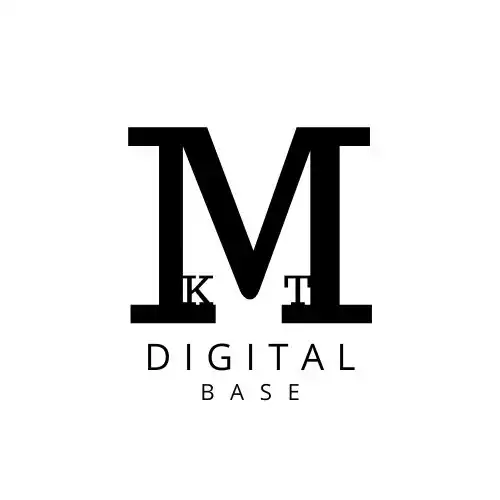In today’s digital age, having a well-structured digital marketing strategy is crucial for businesses looking to thrive in the online landscape. A marketing plan guides the overall direction and goals of a company’s marketing efforts. It serves as a roadmap for all promotional activities, ensuring that resources are utilized effectively to achieve desired outcomes. Without a clear marketing plan, businesses may struggle to reach their target audience and generate leads effectively.
Creating a successful digital marketing campaign involves a combination of various components of a digital marketing plan. These components are designed to work harmoniously to deliver consistent messaging and branding across different online channels.
Key Components of a Digital Marketing Strategy
1. Market Research and Audience Analysis
Market research is the foundation of any successful digital marketing strategy. It involves analyzing the market landscape, identifying industry trends, and understanding the competitive environment. This research provides valuable insights into consumer behavior, preferences, and pain points.
Audience analysis is equally important. By defining target audience segments, businesses can tailor their marketing efforts to address the needs and interests of specific groups. Creating detailed buyer personas helps in understanding the demographics, interests, and online behaviors of potential customers, allowing for more targeted and effective marketing campaigns.
2. Clear Objectives and Goals
Setting clear and measurable objectives and goals is essential for guiding digital marketing efforts. Objectives should align with overall business goals and be specific, measurable, achievable, relevant, and time-bound (SMART). Common digital marketing goals include increasing brand awareness, generating leads, driving website traffic, and boosting sales.
Defining these goals helps in tracking progress and evaluating the success of marketing initiatives. It also ensures that all digital marketing activities are aligned with the desired outcomes and contribute to achieving the overarching business objectives.
3. Digital Channels and Platforms
Choosing the right digital channels and platforms is crucial for reaching the target audience effectively. Various channels include:
- Search Engine Optimization (SEO): Optimizing website content and structure to improve search engine rankings and drive organic traffic.
- Content Marketing: Creating and distributing valuable content to attract and engage the target audience.
- Social Media Marketing: Leveraging platforms like Facebook, Instagram, Twitter, and LinkedIn to connect with audiences and build brand presence.
- Email Marketing: Sending targeted emails to nurture leads, retain customers, and drive conversions.
- Pay-Per-Click (PPC) Advertising: Running paid ads on search engines and social media to drive traffic and generate leads.
- Affiliate Marketing: Partnering with affiliates to promote products or services and earn commissions on sales.
Selecting the right mix of channels depends on the target audience, marketing goals, and available resources.
4. Content Strategy
A well-crafted content strategy is a cornerstone of digital marketing. Content should be relevant, valuable, and tailored to the needs and interests of the target audience. Key elements of a content strategy include:
- Content Creation: Developing high-quality content such as blog posts, articles, videos, infographics, and social media posts.
- Content Distribution: Strategically sharing content across various channels to maximize reach and engagement.
- Content Calendar: Planning and scheduling content to ensure a consistent and organized approach to content delivery.
- Content Optimization: Ensuring content is optimized for search engines (SEO) and designed to engage and convert the target audience.
A strong content strategy helps in building brand authority, driving traffic, and fostering customer loyalty.
5. Search Engine Optimization (SEO)
SEO is a critical component of digital marketing that focuses on improving a website’s visibility in search engine results pages (SERPs). Key aspects of SEO include:
- Keyword Research: Identifying relevant keywords and phrases that potential customers use in their searches.
- On-Page Optimization: Optimizing website elements such as titles, meta descriptions, headings, and content to improve search engine rankings.
- Off-Page Optimization: Building high-quality backlinks and improving the website’s authority through external factors.
- Technical SEO: Ensuring the website’s technical aspects, such as site speed, mobile-friendliness, and site structure, are optimized for search engines.
Effective SEO enhances organic traffic, improves user experience, and boosts overall online visibility.
6. Analytics and Performance Tracking
Analytics and performance tracking are essential for measuring the effectiveness of digital marketing efforts. Tools like Google Analytics, social media insights, and email marketing reports provide valuable data on key performance indicators (KPIs) such as website traffic, conversion rates, engagement metrics, and ROI.
Regularly monitoring and analyzing this data helps in understanding what works and what doesn’t, allowing for data-driven decision-making and continuous improvement. It also enables businesses to adjust strategies and tactics based on performance and emerging trends.
7. Budget and Resource Allocation
Effective budget and resource allocation is crucial for executing a successful digital marketing strategy. Businesses should allocate resources based on the priority of different marketing channels and activities. This includes budgeting for advertising spend, content creation, tool subscriptions, and personnel.
A well-planned budget ensures that resources are used efficiently and that marketing initiatives are executed effectively. It also helps in avoiding overspending and optimizing the overall return on investment.
8. Continuous Improvement and Optimization
Digital marketing is an ever-evolving field, and continuous improvement is key to staying competitive. Businesses should regularly evaluate the performance of their marketing efforts, test new strategies, and optimize campaigns based on insights and feedback.
This iterative approach allows businesses to adapt to changes in the market, leverage new opportunities, and enhance their digital marketing strategies for better results.
What is a Marketing Plan in Digital Marketing?
Importance of a well-defined marketing plan
A well-defined marketing plan is the foundation of any successful digital marketing strategy. It outlines the objectives, target audience, competitive analysis, budget allocation, and timelines for various marketing activities. By having a clear plan in place, businesses can align their marketing efforts with their overall business goals and maximize the impact of their campaigns.
Creating a successful digital marketing campaign
Developing a successful digital marketing campaign requires a deep understanding of the target audience and their preferences. By leveraging data-driven insights and market research, businesses can tailor their messaging and content to resonate with potential customers effectively.
Components of a digital marketing plan
A digital marketing plan typically includes various components such as content marketing, social media marketing, SEO strategy, email marketing, and digital advertising. These components work together to create a comprehensive digital marketing strategy that drives brand awareness, engagement, and conversions.
How to Develop Effective Marketing Strategies?
Difference between a marketing strategy and a marketing campaign
While a marketing strategy outlines the overall approach and objectives of a company’s marketing efforts, a marketing campaign is a specific implementation of that strategy aimed at achieving a particular goal, such as launching a new product or seasonal promotion.
The role of digital marketing strategies in brand promotion
Effective digital marketing strategies play a critical role in promoting brand visibility and engaging with the target audience. By leveraging online channels, businesses can connect with their customers in real-time, gather feedback, and build long-lasting relationships.
Benefits of implementing digital marketing strategies
Implementing digital marketing strategies offers various benefits, including increased brand awareness, lead generation, higher conversion rates, and improved customer loyalty. By leveraging the power of digital marketing, businesses can maximize their reach and impact in the competitive online marketplace.
Why is Digital Presence Essential in Marketing?
Establishing a strong digital presence for your brand
Establishing a strong digital presence is essential for modern businesses to stand out from competitors and attract potential customers. A compelling online presence showcases the brand’s values, products, and services, building trust and credibility among target audiences.
Utilizing online marketing tools to enhance digital visibility
Online marketing tools such as SEO, content marketing, and social media play a crucial role in enhancing digital visibility and driving organic traffic to a company’s website. By implementing these tools effectively, businesses can improve their search engine rankings and reach a wider online audience.
The impact of digital presence on attracting the target audience
A strong digital presence is instrumental in attracting the target audience and engaging them with relevant content and offers. By understanding the preferences and behavior of their target customers, businesses can tailor their digital marketing efforts to meet specific needs and drive conversions.
What are the Key Components of a Digital Marketing Campaign?
Incorporating key elements like SEO, content marketing, and social media
A successful digital marketing campaign integrates key elements such as SEO, content marketing, and social media to reach and engage with the target audience effectively. By creating valuable and shareable content, optimizing it for search engines, and leveraging social media platforms, businesses can amplify their online presence and drive user engagement.
The significance of product or service positioning in a digital campaign
Effective product or service positioning is crucial in a digital campaign to differentiate a brand from competitors and communicate its unique value proposition. By highlighting the benefits and features of their offerings, businesses can attract and retain customers who align with their brand values.
Measuring key metrics for evaluating the success of a digital marketing campaign
Measuring key metrics such as conversion rates, click-through rates, engagement levels, and ROI is essential for evaluating the success of a digital marketing campaign. By analyzing these metrics, businesses can identify areas for improvement, optimize their strategies, and drive better results in future campaigns.
How to Leverage Different Marketing Tools for Digital Success?
Utilizing email marketing for targeted outreach
Email marketing is a powerful tool for targeted outreach and personalized communication with customers. By segmenting their email lists, businesses can deliver relevant content, promotions, and updates to different customer segments, driving engagement and conversions.
Implementing video marketing strategies for engagement
Video marketing is a compelling way to engage audiences and convey brand messages effectively. By creating informative and entertaining videos, businesses can capture viewers’ attention, evoke emotions, and inspire them to take desired actions, such as making a purchase or signing up for a service.
The role of influencer marketing in amplifying digital marketing efforts
Influencer marketing involves collaborating with industry influencers and thought leaders to promote products or services to their followers. By leveraging the credibility and reach of influencers, businesses can amplify their digital marketing efforts and tap into new audiences, driving brand awareness and conversions.











